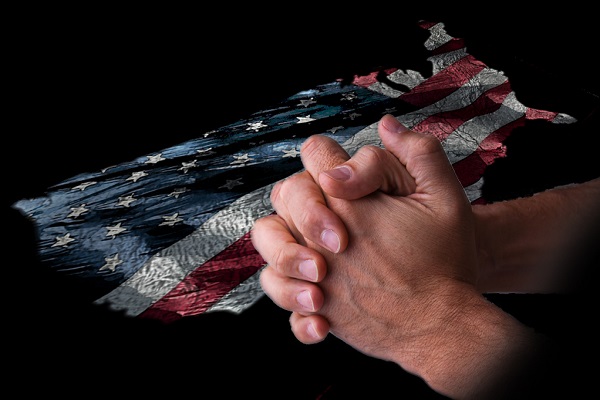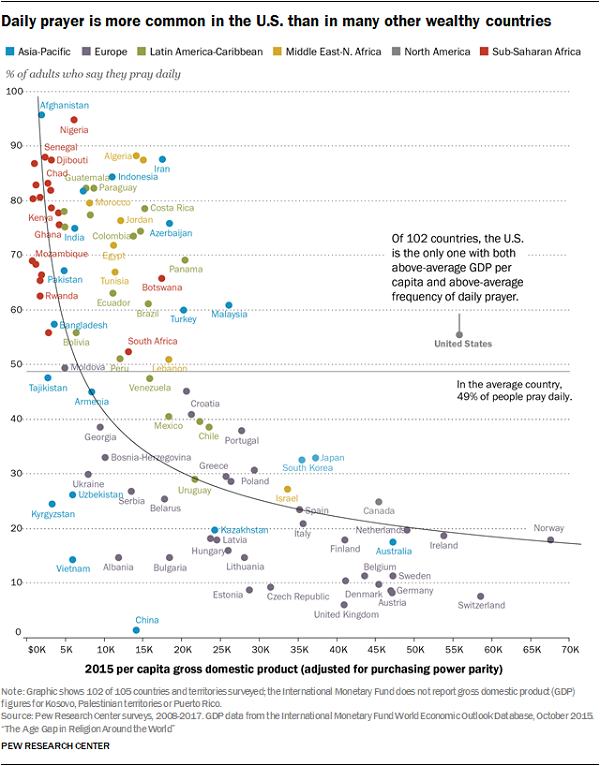
U.S. Adults Are More Religious Than Others in Wealthy Countries
- By C Barnett --
- 02 Aug 2018 --

The U.S. religious map is similar to poorer nations
A report published by Pew Research Center on July 31 showed Americans to be much more religious than their counterparts in other developed nations.[/tweetit] This statistic held even when there were significant declines in religious practice and the rise of non-religious people (collectively referred to as "nones") in the U.S. The Pew report revealed Americans frequently pray and are much more probable to attend the weekly religious services. U.S. adults also put a bigger importance on faith compared to their compatriots in other Western democracies.
U.S. Adults Are More Religious Than Others in Wealthy Countries[/tweetthis]
The statistics reveal all: 55 percent of U.S. citizens claim to pray every day, putting it in the same club as poorer nations like Bolivia (56 percent) and Bangladesh (57 percent). Other developed, richer nations, in contrast, are much less entangled with religion, like only 25 percent of Canadians admit to praying every day. In Australia, it is 18 percent and a meager six percent in the United Kingdom. The study showed that the United States is the sole nation out of the surveyed 102 countries which have higher than the median quotient of both religious piety and wealth. This is an anomaly, as every other country enjoying a GDP (Gross Domestic Product) in excess of $30,000 per citizen, fewer than 40 percent of its citizens claim to pray every day.

Social scientists understandably are fascinated by this. The most popular explanation is that the open and unregulated "religious market" of the United States was, and continues, to be a fertile soil for religious growth. The U.S. does not cap religious activities and different faiths compete with each other for adding new members into their fold. Sociologists have pushed another explanation: the comparatively high-income inequality rates in the United States have resulted in high religious levels. This is as people all over the world, the United States included, suffering from income inequality tend to find refuge in religious faith as they are more vulnerable to the financial doldrums.
All these do not mean the United States is immune to the secularization wave which has swept most rich nations. The Pew study also revealed that a marginal decline in the empirical number of U.S. citizens who claim to believe in God. The statistic is in line with the discovery that U.S. adults less than 40 years of age are more likely to be secular. These may lead to further religious commitment declines in the future.


















